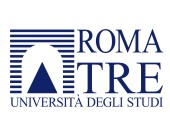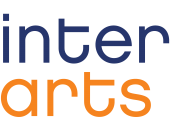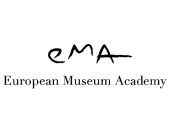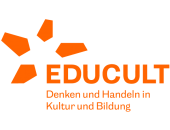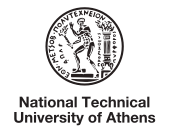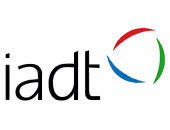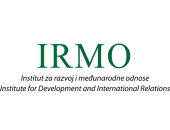Archive
D1.1 Review of Research Literature, Policy Programmes and (good and bad) Practices
Report that features the recent literature on assessing the impact of cultural heritage interventions across the cultural, social, economic and environmental domains. The research draws from academic resources, current policies and regulations, as well as social platforms. The content is structured around Trends, Policies, Gaps & Opportunities and Strategies.
D1.2 Concise Essay mapping existing Gaps, Issues and Problems
The essay builds upon the findings of the previous D1.1 by mapping gaps and shortcomings identified throughout the literature review, and through collective reflection during the Athens’ Virtual Workshop process. The D1.2 adopts a critical point of view to synthesize these findings towards the formulation of a holistic cultural heritage impact assessment.
D1.4 Towards a Digital Mapping Tool for SoPHIA
The digital mapping tool (DMT) responds to SoPHIA’s need to create tools that enable the visual representation and the graphical analysis of case studies regarding the application of the SoPHIA’s holistic impact assessment model, also reflecting the three axes of SoPHIA’s HIA framework: people, domains, and time. In particular, the DMT facilitates the collaboration between the Consortium, the stakeholders, and the local communities addressing the SoPHIA project by providing digital visual access to the current situation regarding cultural interventions and by reflecting relevant data of the case studies within an interactive digital mapping environment linked to the SoPHIA’s website.
D2.1 Mapping of Impact Assessment Practices in Cultural Heritage
The identification and mapping of existing impact assessment practices in cultural heritage aims at collecting information on well and poorly done practices. SoPHIA´s Advisory Board members and stakeholders were asked to share their thoughts and experiences via an open questionnaire. The mapping comprises the executive summary, aims and methodology, reflection on practices using Heritage Impact Assessment (HIA), examples of IA practices and conclusions. This review proves to be a crucial exercise in identifying key factors that will define the process of developing the SoPHIA model and others.
D2.2 Case Studies Report
The report summarizes the findings of the case studies in which the draft impact assessment model (SoPHIA model) has been applied. Testing the SoPHIA model along the lines of these cases was a crucial exercise for identifying necessary adaptations to the model. All case studies are included in the annex of D2.2, portraying rich insights into the impact of various interventions in Europe throughout the last 20 years.
The Model aims at assessing the impacts of cultural heritage interventions. The holistic/multi- and cross-domain Model is based on the three-axis time, people and domains, with sustainability and resilience as overarching concepts. The Model is intended for policy makers, managers and practitioners, institutional observers and independent researchers. The main features have been identified through the literature review (D1.1, D1.2) along with the analysis of best practices (D2.1), the case studies (D2.2), workshops and conferences (D4.3, D4.6, D4.7), and the continuous consultations with the project´s stakeholders and advisory board members.
D3.1 – Toolkit for Stakeholders
The Toolkit unpacks the concept of impact assessment (IA) and its application in the field of cultural heritage, along with practical and methodological issues related to IA and serves as a manual for introducing a holistic approach to IA and aims to support cultural heritage practitioners in assessing the impact of their interventions, specifically considering the sustainability and resilience of cultural heritage. It presents, in practical steps, how to assess the multidimensional and holistic impacts that cultural heritage interventions have on their communities through six general themes: social capital and governance; identity of place; quality of life; protection; education, creativity, and innovation; and work and prosperity, and through 28 corresponding subthemes.
Based on the understanding that cultural heritage is a potential resource for sustainable development and considering the lack of shared standards for holistic impact assessment, SoPHIA has revisited and redefined the concept of holistic assessment of cultural heritage interventions: the SoPHIA Policy Briefs present in a concise and critical manner issues of interest for policymakers in this specific area. Indeed, they accurately present the problems and propose feasible and sensible solutions, with a view of convincing them to change the direction of a particular policy by changing their perception.
- D3.3 – Policy brief with recommendations on cultural impact for policy makers
- D3.4 - Policy brief with recommendations on social impact for policy makers
- D3.5 - Policy brief with recommendations on economic impact for policy makers
- D3.6 - Policy briefs with recommendations on environmental impact for policy makers
D3.7 – Guidelines for an action plan on the EU future action regarding operational programmes and public policies
This document provides EU policymakers with recommendations to ensure heritage impact assessment, also as a tool to monitor the quality such interventions to be funded under the operational programmes. It may also serve as a reference for national and local policymakers seeking to introduce national/local policies supporting heritage sustainable and resilient interventions with a quality impact. The guidelines/recommendations may also serve cultural heritage managers in planning the expected impacts of heritage intervention as well as in adjusting the intervention accordingly.
D3.8 - Report on the final public conference
This document provides detailed information on the SoPHIA Final Conference, held in a hybrid format from Roma Tre University on December 16th and 17th, 2021. The outcomes of the Final Conference played a crucial role for the project: although it represented the formal conclusion of the SoPHIA project, the Final Conference also marked the starting point for the SoPHIA model implementation phase.
D3.9 - Future need and research agenda
In this document EU cultural heritage research programmes are presented to support the idea that holistic impact assessment of CH interventions is a priority in the European research agenda. The existing programmes specifically related to research (Horizon Europe) as well as those fostering other types of funding opportunities are analysed and their priorities are linked to the SoPHIA model to show complementarities. Finally, future research needs are detected in the form of different topics related to the SoPHIA model as further needed advancement.
D4.3 The Athens Virtual Workshop: “Towards a Holistic Heritage Impact Assessment Model”. Proceedings
This document summarizes the contributions made during the first workshop with SoPHIA´s community of practice, as well as the outcomes of the discussion groups. It includes the Workshop Agenda and the presentations.
The proceedings of the SoPHIA´s Stakeholders Virtual Conference, on April 21 and 22, 2021, collect the discussions that took place in the form of panels, with pressing issues of cultural heritage that have proven to be relevant to the twelve cases of interventions analyzed in the project against the testing phase of the impact assessment draft model. They also account for the inputs collected on cross-cutting issues and counter-effects of the impact of CH interventions, directly related to the three axis of the draft model: people, dimensions and time.
The proceedings of the SoPHIA Stakeholders´ Workshop (SW) are framed within the third phase of the project, that provided, on the one hand, for a last discussion on the definition of an effective holistic impact assessment model, as well as the quality standards and guidelines for future policies and programmes in Europe. Discussions at the SW were guided by the following questions: are the main challenges identified sufficient?; are there innovative research streams other than those suggested?; are there policy recommendations others than those suggested?
D5.4 Dissemination and Exploitation Plan
The Plan focuses on the dissemination towards and uptake of results by specific audiences. Activities in this sense are planned as the project unfolds, being guided by the overarching actions that the document presents.
D5.5 SoPHIA Newsletters
Newsletters produced by SoPHIA account for the project life and introduce readers to issues related to cultural heritage impact assessment, mainly based on the scientific outputs and results as well as on processes. Newsletters count with editorials, news, interviews and report on collaborations with other related projects and networks.
This document reports on the SoPHIA´s Stakeholders Virtual Conference, on April 21 and 22, 2021, with the materials that were made public before the Conference: agenda, bios of the speakers, introduction to the topics of the Conference, brief description of SoPHIA´s case studies, the press release and the visual identity of the event (in additton, see D4.6 Proceedings)

